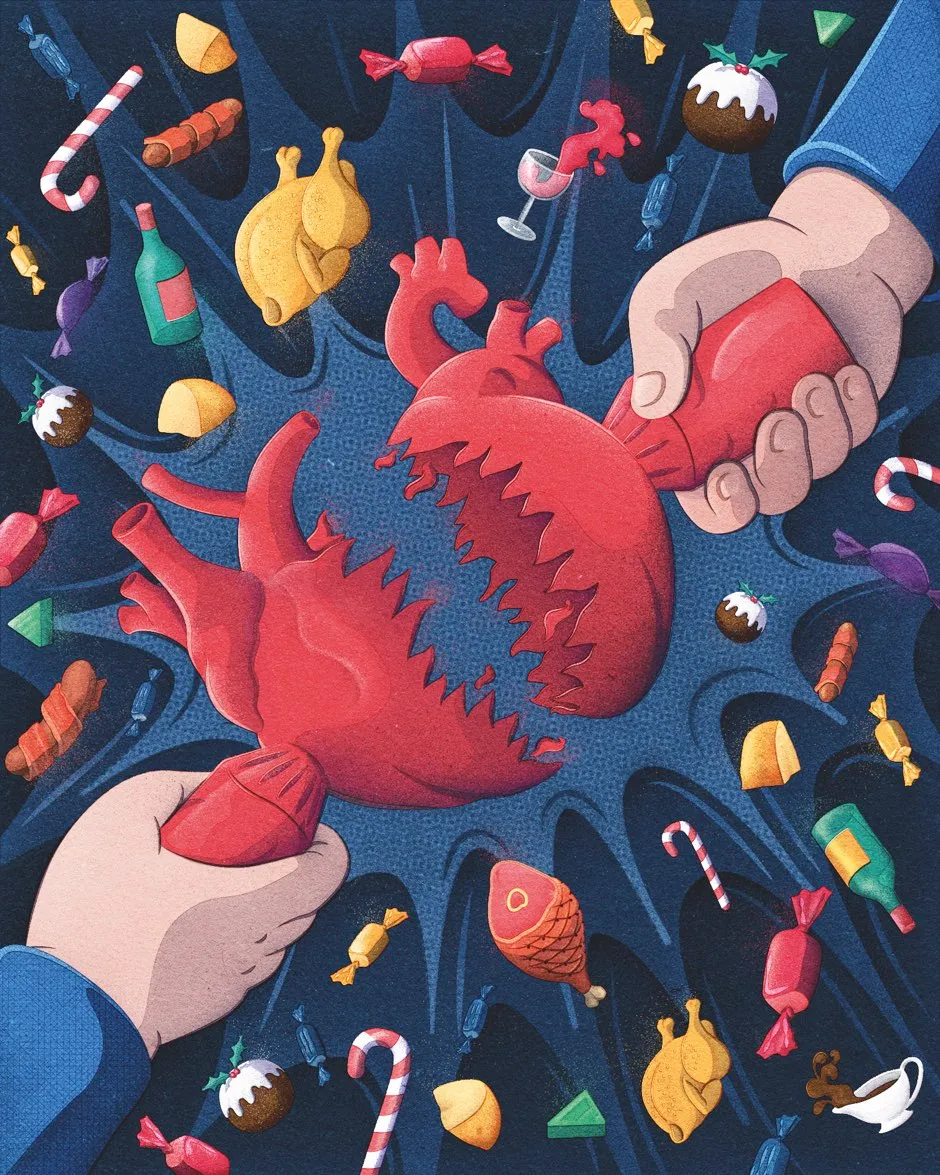One of the most likely times of the year to have a heart attack is on Christmas Eve. To arrive at this rather gloomy conclusion researchers from Lund University in Sweden looked back through more than 280,000 cases of myocardial infarctions reported as part of the SWEDEHEART study.
They found that the risk of having a heart attack on Christmas Eve was 37 per cent higher than during a control period and that the risk peaked at around 22:00. They wondered if all the food, booze and cold nights in the weeks leading up to Christmas Eve might have contributed.
It is certainly true that all that extra fat and sugar you consume in the build up to Christmas will put a strain on your waist and your heart. But assuming you survive Christmas Eve, which part of the Christmas dinner is most likely to put your heart at risk?
You might think having turkey is going to be more heart-friendly than red meat. But it probably isn’t. In a recent study, led by scientists from the Benioff Children’s Hospital in Oakland, California, they asked 113 healthy men and women to eat either a diet rich in red meat, white meat or non-meat protein for four weeks, each in a random order.

To their surprise, they found that consuming red meat or poultry had a similar effect on blood cholesterol levels. The good news, however, was that although eating these meats raised low density lipoprotein levels (ie LDL, commonly described as ‘bad cholesterol’) the effect was mainly to increase large particle LDL. This form of LDL seems to be fairly benign.
So what about the roast potatoes? I love roast potatoes, but for some reason people think it is a good idea to spend hours at the sink peeling potatoes on Christmas Day. It is not!
Potato skin is rich in soluble and insoluble fibre. Fibre helps to bind bile acids, which your body produces to help digest food. This is great because bile acids are made of cholesterol. So just give those potatoes a wash.
I will be basting my potatoes, as I do every year, in olive oil. Despite a widespread belief that it is bad to fry or roast foods in olive oil, it is a stable fat. It also seems to be good for the heart in a number of different ways.
Consuming extra virgin olive oil lowers inflammation, prevents ‘bad’ LDL cholesterol from oxidising (which is a major step towards atherosclerosis) and has also been shown to help lower blood pressure.
Possibly the worst part of the meal is going to be the Christmas pudding. Rich in calories and sugar, it will push your blood sugars up and have a major impact on your triglyceride levels, which are another significant predictor of heart disease. On the other hand, it is delicious.
And on that cheerful note I wish you all a very happy Christmas!
Read more from Michael Mosley: